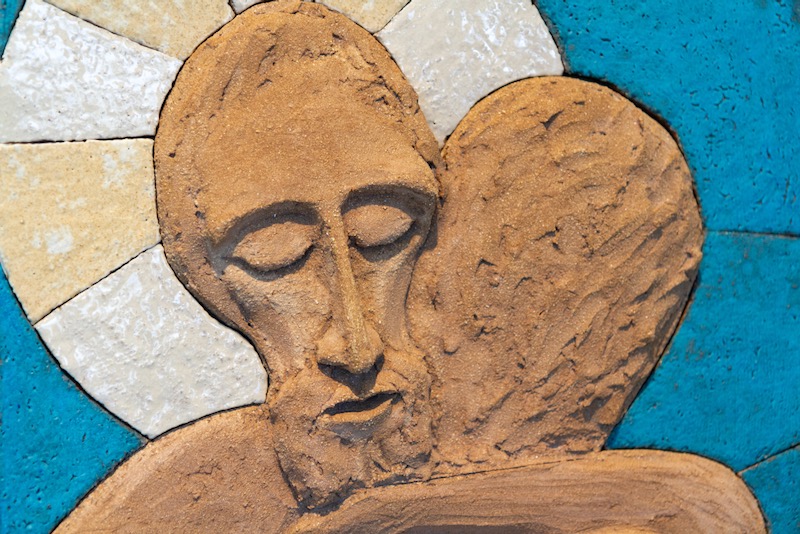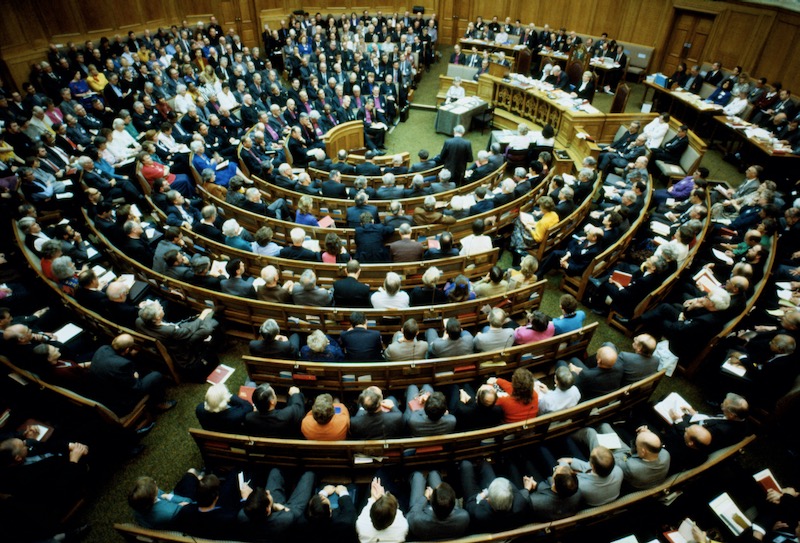I used to teach a church history course to adult learners in the Diocese of Blackburn. The course began with the Church in the New Testament, before a second session on the Fathers and the first four ecumenical councils, and a third on the Church of the Middle Ages. The fourth session tackled the beginnings of the Protestant Reformation. At the outset of the session, I asked the participants to tell me what the word Catholic conjures up for them and write their responses on one half of a flipchart pad. Pope and priest, candles and ciboria, mass and Mary, transubstantiation and confession, vestments and incense – these are among the usual responses. I then repeated the exercise for the word “reformed,” and wrote the responses on the other half of the pad. We typically had words like “bible,” “preaching,” “low-church’, and “pastor” proffered this time. This exercise was all preamble to the real opening gambit for the session: What does it mean to claim, as we Anglicans do, that the Church of England is “catholic and reformed’? Some try to rehash the anachronistic and quite inaccurate cliché that the Church of England is a via media between the Roman Church and Protestantism proper, while others attempt an eclectic pick-and-mix between the two columns as that which represents the essence of Anglicanism. The bulk of the next hour of the session is therefore devoted to unpacking the true meaning of the word “catholic,” before returning to the question of how a Church might be “catholic and reformed” without contradiction or compromise.
The word “catholic” comes from the Greek κατα ?λος (kata holos), which means “in accordance with the whole.” Catholicity means wholeness – a “thick” concept of wholeness applied to the Christian faith, life, and Church. It is in this wholeness sense that when we recite the Creed, we confess our belief in “one, holy, catholic and apostolic Church.” It is in this wholeness sense that the English Reformers claimed (and we in the Church of England today still claim) that the Church of England is part of the Catholic Church. The word “Catholic,” especially over the course of the last hundred years, has carried what we might call today a “trigger warning” for Anglican evangelicals. Since the rise of the Oxford Movement in the nineteenth century, evangelicals have become used to defining their theology and practice in contradistinction to the “Catholicism” of the Tractarians and their heirs. But this has had the effect of throwing the Catholic baby out with the Ritualist bathwater. It is not unknown for certain low-church evangelicals to substitute (illegally) “universal” in place of the word “catholic” in the Creed (though the two are not synonymous, since “universal” refers only to extension in space while “catholic” refers to extension in space and time), such is the opprobrium attached to the word and concept. But “catholic” is not a dirty word: it is a wonderful, sacred word and concept that evangelicals – if they are true to the ecclesial vision of the English Reformers – should treasure, protect, and seek to prosper.
In my chapter in God’s Church for God’s World, I make the case that the Church of England has – however imperfectly – conserved the Catholic canon of Scripture, confessed the Catholic creed, taken part in the Catholic conversation (the Great Tradition flowing from the Fathers through the Doctors of the Church), been guided by the Catholic conscience (upholding the univocal moral vision of the Christian tradition), respected the Catholic cultus (pattern of worship), preserved the Catholic connection (upholding the unity of the church through episcopacy), and ministered within the Catholic circumference (the visible church of all the baptised). The catholic and reformed ecclesiology and method of the English Reformers is a coherent and compelling vision for the Church that safeguards evangelicalism from the spiritual, theological, and missional narrowness to which it can be otherwise susceptible.
In the midst of the acrimonious debates that currently besiege the Church of England, some evangelical clergy and even whole church congregations are tempted to cut loose and join up with one of the small alternative Anglican denominations that have arisen in recent years to answer that perceived need (and a handful of ministers and congregations already have). In response, several reasons are often given for why evangelicals should persevere in the Church of England despite the challenges and compromises currently being faced. Most of the reasons commonly given are pragmatic – both financial and missional. But the ecclesiological argument for “sticking with it” is not made often enough among Anglican evangelicals, and it is this lacuna I have sought to supply. Evangelicals should remain in the Church of England for catholic reasons. The Church of England helps keep evangelicals Catholic, and evangelicals help keep the Catholic Church of England evangelical. If “Evangelexit” were to occur, it would inevitably be into churches that are less Catholic than the Church of England. That would be to the detriment of the spiritual health of the evangelical Anglican movement itself, and of the nation as a whole.
The Rev’d Dr Tom Woolford is a Church of England priest in the Diocese of Blackburn and the co-editor of God’s Church for God’s World: Faithful Perspectives on Mission and Ministry, published by IVP. He has also contributed a chapter to the book, entitled, “Keeping evangelicals Catholic, and the Catholic church evangelical.’



 Loading ...
Loading ...
What do you think?
You can post as a subscriber user ...
User comments (1)
Our experience of Growing in Faith at St. Joseph's Bunhill Row, on the edge of the City of London, appears to be markedly different from Kay Mason's. There has been absolutely no sense of this being imposed upon us, a lively parish without a resident priest, but pastorally supported, in a very committed way, by a neighbouring busy parish priest who is our canonical Administrator.
A small parish - 80-100 people attend our one Sunday Mass - we have had zero opt-outs from the original GiF pledges given. We have exceeded our early target of £60,000 over 5 years and this has already born fruit. We have allocated funds to support the work of Citizens UK in which we are active; Sunday, 6 July, saw the Blessing of a Lift to enable to our basement level church space and the 1st floor Parish Hall. This has not compromised our commitment to generous fundraising for CAFOD, nor our role as a Fairtrade Parish.
Because we have an effective Pastoral Council, which includes an ecumenical representative as a sign of our strong partnership with other local Churches, there has been a robust sense of ownership from all our highly diverse congregation. Rather than following discredited patterns of 'pay, pray, & obey', Growing in Faith has helped us live out our priestly role as people of God and missionary disciples, committed to promoting the reign of God in our local community.